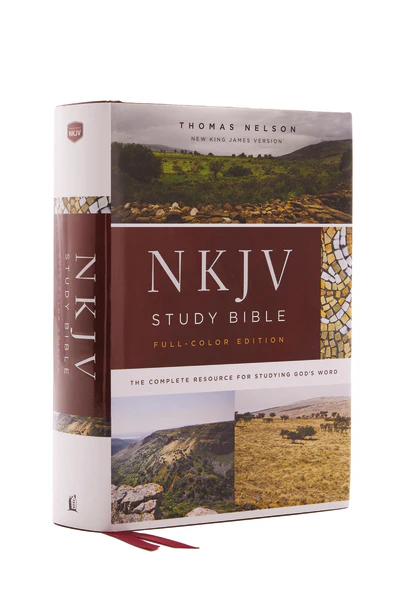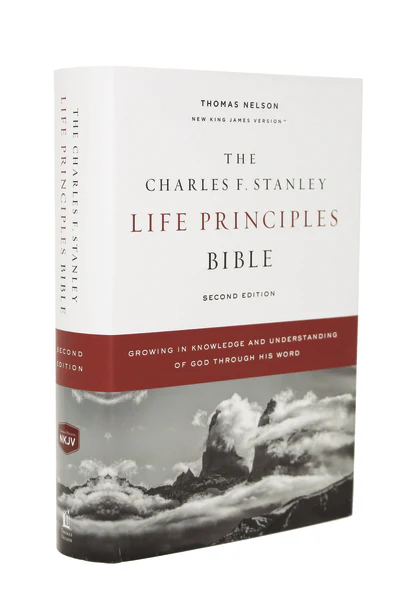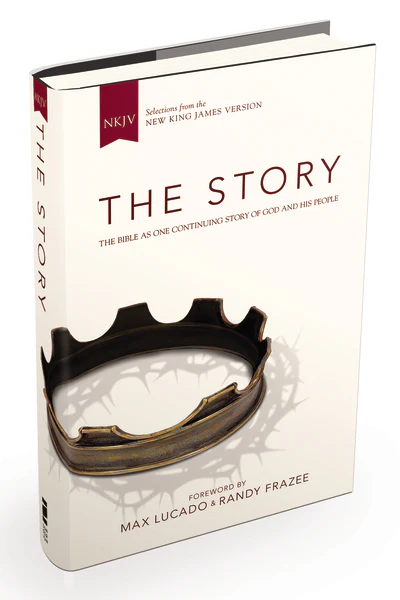John 2:23-25
New King James Version
The Discerner of Hearts
23 Now when He was in Jerusalem at the Passover, during the feast, many believed in His name when they saw the (A)signs which He did. 24 But Jesus did not commit Himself to them, because He (B)knew all men, 25 and had no need that anyone should testify of man, for (C)He knew what was in man.
Read full chapter
John 20:30-31
New King James Version
That You May Believe
30 And (A)truly Jesus did many other signs in the presence of His disciples, which are not written in this book; 31 (B)but these are written that (C)you may believe that Jesus (D)is the Christ, the Son of God, (E)and that believing you may have life in His name.
Read full chapter
Romans 3-4
New King James Version
God’s Judgment Defended
3 What advantage then has the Jew, or what is the profit of circumcision? 2 Much in every way! Chiefly because (A)to them were committed the [a]oracles of God. 3 For what if (B)some did not believe? (C)Will their unbelief make the faithfulness of God without effect? 4 (D)Certainly not! Indeed, let (E)God be [b]true but (F)every man a liar. As it is written:
(G)“That You may be justified in Your words,
And may overcome when You are judged.”
5 But if our unrighteousness demonstrates the righteousness of God, what shall we say? Is God unjust who inflicts wrath? (H)(I speak as a man.) 6 Certainly not! For then (I)how will God judge the world?
7 For if the truth of God has increased through my lie to His glory, why am I also still judged as a sinner? 8 And why not say, (J)“Let us do evil that good may come”?—as we are slanderously reported and as some affirm that we say. Their [c]condemnation is just.
All Have Sinned(K)
9 What then? Are we better than they? Not at all. For we have previously charged both Jews and Greeks that (L)they are all under sin.
10 As it is written:
(M)“There is none righteous, no, not one;
11 There is none who understands;
There is none who seeks after God.
12 They have all turned aside;
They have together become unprofitable;
There is none who does good, no, not one.”
13 “Their(N) throat is an open [d]tomb;
With their tongues they have practiced deceit”;
(O)“The poison of asps is under their lips”;
14 “Whose(P) mouth is full of cursing and bitterness.”
15 “Their(Q) feet are swift to shed blood;
16 Destruction and misery are in their ways;
17 And the way of peace they have not known.”
18 “There(R) is no fear of God before their eyes.”
19 Now we know that whatever (S)the law says, it says to those who are under the law, that (T)every mouth may be stopped, and all the world may become [e]guilty before God. 20 Therefore (U)by the deeds of the law no flesh will be justified in His sight, for by the law is the knowledge of sin.
God’s Righteousness Through Faith
21 But now (V)the righteousness of God apart from the law is revealed, (W)being witnessed by the Law (X)and the Prophets, 22 even the righteousness of God, through faith in Jesus Christ, to all [f]and on all who believe. For (Y)there is no difference; 23 for (Z)all have sinned and fall short of the glory of God, 24 being justified [g]freely (AA)by His grace (AB)through the redemption that is in Christ Jesus, 25 whom God set forth (AC)as a [h]propitiation (AD)by His blood, through faith, to demonstrate His righteousness, because in His forbearance God had passed over (AE)the sins that were previously committed, 26 to demonstrate at the present time His righteousness, that He might be just and the justifier of the one who has faith in Jesus.
Boasting Excluded
27 (AF)Where is boasting then? It is excluded. By what law? Of works? No, but by the law of faith. 28 Therefore we conclude (AG)that a man is [i]justified by faith apart from the deeds of the law. 29 Or is He the God of the Jews only? Is He not also the God of the Gentiles? Yes, of the Gentiles also, 30 since (AH)there is one God who will justify the circumcised by faith and the uncircumcised through faith. 31 Do we then make void the law through faith? Certainly not! On the contrary, we establish the law.
Abraham Justified by Faith(AI)
4 What then shall we say that (AJ)Abraham our (AK)father[j] has found according to the flesh? 2 For if Abraham was (AL)justified by works, he has something to boast about, but not before God. 3 For what does the Scripture say? (AM)“Abraham believed God, and it was [k]accounted to him for righteousness.” 4 Now (AN)to him who works, the wages are not counted [l]as grace but as debt.
David Celebrates the Same Truth
5 But to him who (AO)does not work but believes on Him who justifies (AP)the ungodly, his faith is accounted for righteousness, 6 just as David also (AQ)describes the blessedness of the man to whom God imputes righteousness apart from works:
7 “Blessed(AR) are those whose lawless deeds are forgiven,
And whose sins are covered;
8 Blessed is the man to whom the Lord shall not impute sin.”
Abraham Justified Before Circumcision
9 Does this blessedness then come upon the circumcised only, or upon the uncircumcised also? For we say that faith was accounted to Abraham for righteousness. 10 How then was it accounted? While he was circumcised, or uncircumcised? Not while circumcised, but while uncircumcised. 11 And (AS)he received the sign of circumcision, a seal of the righteousness of the faith which he had while still uncircumcised, that (AT)he might be the father of all those who believe, though they are uncircumcised, that righteousness might be imputed to them also, 12 and the father of circumcision to those who not only are of the circumcision, but who also walk in the steps of the faith which our father (AU)Abraham had while still uncircumcised.
The Promise Granted Through Faith
13 For the promise that he would be the (AV)heir of the world was not to Abraham or to his seed through the law, but through the righteousness of faith. 14 For (AW)if those who are of the law are heirs, faith is made void and the promise made of no effect, 15 because (AX)the law brings about wrath; for where there is no law there is no transgression.
16 Therefore it is of faith that it might be (AY)according to grace, (AZ)so that the promise might be [m]sure to all the seed, not only to those who are of the law, but also to those who are of the faith of Abraham, (BA)who is the father of us all 17 (as it is written, (BB)“I have made you a father of many nations”) in the presence of Him whom he believed—God, (BC)who gives life to the dead and calls those (BD)things which do not exist as though they did; 18 who, contrary to hope, in hope believed, so that he became the father of many nations, according to what was spoken, (BE)“So shall your descendants be.” 19 And not being weak in faith, (BF)he did not consider his own body, already dead (since he was about a hundred years old), (BG)and the deadness of Sarah’s womb. 20 He did not waver at the promise of God through unbelief, but was strengthened in faith, giving glory to God, 21 and being fully convinced that what He had promised (BH)He was also able to perform. 22 And therefore (BI)“it was accounted to him for righteousness.”
23 Now (BJ)it was not written for his sake alone that it was imputed to him, 24 but also for us. It shall be imputed to us who believe (BK)in Him who raised up Jesus our Lord from the dead, 25 (BL)who was delivered up because of our offenses, and (BM)was raised because of our justification.
Footnotes
- Romans 3:2 sayings, Scriptures
- Romans 3:4 Found true
- Romans 3:8 Lit. judgment
- Romans 3:13 grave
- Romans 3:19 accountable
- Romans 3:22 NU omits and on all
- Romans 3:24 without any cost
- Romans 3:25 mercy seat
- Romans 3:28 declared righteous
- Romans 4:1 Or (fore)father according to the flesh has found?
- Romans 4:3 imputed, credited, reckoned, counted
- Romans 4:4 according to
- Romans 4:16 certain
James 2
New King James Version
Beware of Personal Favoritism
2 My brethren, do not hold the faith of our Lord Jesus Christ, (A)the Lord of glory, with (B)partiality. 2 For if there should come into your assembly a man with gold rings, in [a]fine apparel, and there should also come in a poor man in [b]filthy clothes, 3 and you [c]pay attention to the one wearing the fine clothes and say to him, “You sit here in a good place,” and say to the poor man, “You stand there,” or, “Sit here at my footstool,” 4 have you not [d]shown partiality among yourselves, and become judges with evil thoughts?
5 Listen, my beloved brethren: (C)Has God not chosen the poor of this world to be (D)rich in faith and heirs of the kingdom (E)which He promised to those who love Him? 6 But (F)you have dishonored the poor man. Do not the rich oppress you (G)and drag you into the courts? 7 Do they not blaspheme that noble name by which you are (H)called?
8 If you really fulfill the royal law according to the Scripture, (I)“You shall love your neighbor as yourself,” you do well; 9 but if you [e]show partiality, you commit sin, and are convicted by the law as (J)transgressors. 10 For whoever shall keep the whole law, and yet (K)stumble in one point, (L)he is guilty of all. 11 For He who said, (M)“Do not commit adultery,” also said, (N)“Do not murder.” Now if you do not commit adultery, but you do murder, you have become a transgressor of the law. 12 So speak and so do as those who will be judged by (O)the law of liberty. 13 For (P)judgment is without mercy to the one who has shown (Q)no (R)mercy. (S)Mercy triumphs over judgment.
Faith Without Works Is Dead(T)
14 (U)What does it profit, my brethren, if someone says he has faith but does not have works? Can faith save him? 15 (V)If a brother or sister is naked and destitute of daily food, 16 and (W)one of you says to them, “Depart in peace, be warmed and filled,” but you do not give them the things which are needed for the body, what does it profit? 17 Thus also faith by itself, if it does not have works, is dead.
18 But someone will say, “You have faith, and I have works.” (X)Show me your faith without [f]your works, (Y)and I will show you my faith by [g]my works. 19 You believe that there is one God. You do well. Even the demons believe—and tremble! 20 But do you want to know, O foolish man, that faith without works is [h]dead? 21 Was not Abraham our father justified by works (Z)when he offered Isaac his son on the altar? 22 Do you see (AA)that faith was working together with his works, and by (AB)works faith was made [i]perfect? 23 And the Scripture was fulfilled which says, (AC)“Abraham believed God, and it was [j]accounted to him for righteousness.” And he was called (AD)the friend of God. 24 You see then that a man is justified by works, and not by faith only.
25 Likewise, (AE)was not Rahab the harlot also justified by works when she received the messengers and sent them out another way?
26 For as the body without the spirit is dead, so faith without works is dead also.
Footnotes
- James 2:2 bright
- James 2:2 vile
- James 2:3 Lit. look upon
- James 2:4 differentiated
- James 2:9 Lit. receive the face
- James 2:18 NU omits your
- James 2:18 NU omits my
- James 2:20 NU useless
- James 2:22 complete
- James 2:23 credited
Matthew 7:21-27
New King James Version
I Never Knew You(A)
21 “Not everyone who says to Me, (B)‘Lord, Lord,’ shall enter the kingdom of heaven, but he who (C)does the will of My Father in heaven. 22 Many will say to Me in that day, ‘Lord, Lord, have we (D)not prophesied in Your name, cast out demons in Your name, and done many wonders in Your name?’ 23 And (E)then I will declare to them, ‘I never knew you; (F)depart from Me, you who practice lawlessness!’
Build on the Rock(G)
24 “Therefore (H)whoever hears these sayings of Mine, and does them, I will liken him to a wise man who built his house on the rock: 25 and the rain descended, the floods came, and the winds blew and beat on that house; and it did not fall, for it was founded on the rock.
26 “But everyone who hears these sayings of Mine, and does not do them, will be like a foolish man who built his house on the sand: 27 and the rain descended, the floods came, and the winds blew and beat on that house; and it fell. And great was its fall.”
Read full chapterScripture taken from the New King James Version®. Copyright © 1982 by Thomas Nelson. Used by permission. All rights reserved.
Bible Gateway Recommends






